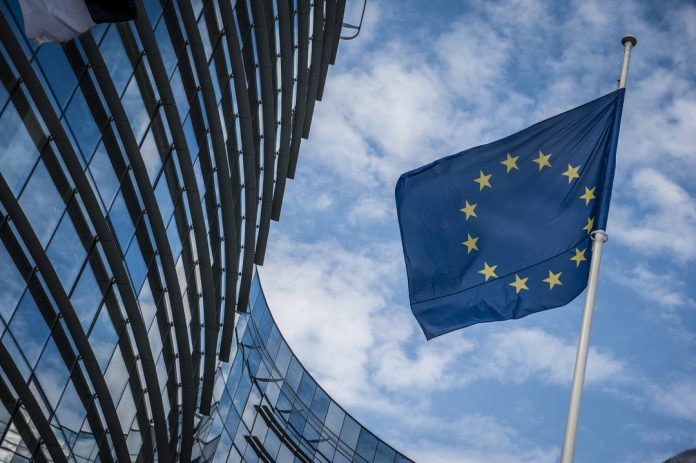The euro zone’s economy stagnated last year, underperforming the rest of the world as former powerhouse Germany struggled with an industrial malaise that has no end in sight, data showed on Tuesday.
The 20 countries that share the euro barely avoided a recession in the final quarter of last year even as the global economy expanded and the euor zone’s biggest trading partner, the United States, chalked up impressively brisk growth.
The euro area’s underperformance was mostly due to weakness in Germany, which has seen its business model relying on cheap energy from Russia and intense two-way trade with China upended by geopolitical events.
Europe’s largest economy shrank by 0.3% in the last three months of 2023 while the bloc as a whole saw steady output, helped by expansions in Spain and Italy, Eurostat’s flash or preliminary figure showed. That marked the sixth consecutive quarter of no or little growth.
Economists expect more of the same in the coming months before a timid recovery in the summer, which should lead to another year of meagre growth for the euro area.
“Stronger household consumption as the effects of the shock to energy prices subside and inflation falls, supporting real income growth, is expected to drive the recovery,” the International Monetary Fund said on Tuesday in its World Economic Outlook.
Still, it downgraded its euro area economic growth forecast to 0.9% this year and 1.7% in 2025.
Private-sector economists were also downbeat, with S&P Global Market Intelligence warning of a “challenging” year “amid faltering demand and increasing geopolitical tensions”.
LAGGING THE U.S.
This was in stark contrast with the United States.
While both economies have been subject to a steady diet of interest rate hikes by their central banks in response to a surge in inflation, the U.S. economy shrugged off dire predictions of recession and grew by 2.5% last year.
Eurostat did not provide an annual figure for the euro zone overall with the report, which is subject to change, particularly due to possible revisions in Irish output, but the IMF put it at just 0.5%.
The new year kicked off with a wave of strikes and protests over inflation, including several by farmers in Germany and France who oppose plans to gradually reduce subsidies from the European Union.
With inflation now falling, workers are likely to regain some purchasing power this year. Meanwhile, anticipated rate cuts by the European Central Bank should also ease pressure on the battered construction sector.
But this may prove too little, too late, according to Christoph Weil, an economist at Commerzbank.
“A significant upturn is also unlikely for the rest of the year,” he said. “In view of persistently high inflation, the ECB is unlikely to lower its key rates before the summer, and this is unlikely to have a positive impact on the economy until 2025.”





I’m very excited to speak about Bryan Recovery, this cyber security company was able to assist me in recovering my stolen digital funds and cryptocurrency. I’m truly amazed by their excellent service and professional work. I never thought I could get back my funds until I approached them with my problems and provided all the necessary information. It took them 72 hours to recover my funds and I was amazed. Without any doubt, I highly recommend Bryan Recovery for all your cryptocurrency recovery, digital funds recovery, hacking, and cybersecurity-related issues.
Email: (bryanrecovery@consultant .com)
WhatsApp: +15804470130.